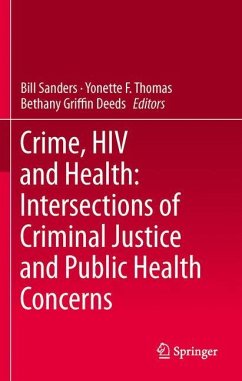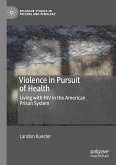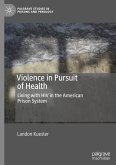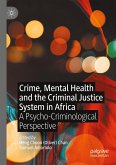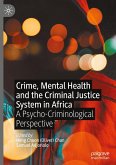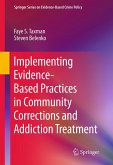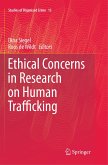Carefully selected to reflect the latest research at the interface between public health and criminal justice in the US, these contributions each focus on an aspect of the relationship. How, for example, might a person's criminal activity adversely affect their health or their risk of exposure to HIV infection? The issues addressed in this volume are at the heart of policy in both public health and criminal justice. The authors track a four-fold connection between the two fields, exploring the mental and physical health of incarcerated populations; the health consequences of crime, substance abuse, violence and risky sexual behaviors; the extent to which high crime rates are linked to poor health outcomes in the same neighborhood; and the results of public health interventions among traditional criminal justice populations.
As well as exploring these urgent issues, this anthology features a wealth of remarkable interdisciplinary contributions that see public health researchers focusing on crime, while criminologists attend to public health issues. The papers provide empirical data tracking, for example, the repercussions on public health of a fear of crime among residents of high-crime neighborhoods, and the correlations between HIV status and outcomes, and an individual's history of criminal activity. Providing social scientists and policy makers with vital pointers on how the criminal justice and public health sectors might work together on the problems common to both, this collection breaks new ground by combining the varying perspectives of a number of key disciplines.
As well as exploring these urgent issues, this anthology features a wealth of remarkable interdisciplinary contributions that see public health researchers focusing on crime, while criminologists attend to public health issues. The papers provide empirical data tracking, for example, the repercussions on public health of a fear of crime among residents of high-crime neighborhoods, and the correlations between HIV status and outcomes, and an individual's history of criminal activity. Providing social scientists and policy makers with vital pointers on how the criminal justice and public health sectors might work together on the problems common to both, this collection breaks new ground by combining the varying perspectives of a number of key disciplines.
"Crime, HIV and Health: Intersections of Criminal Justice and Public Health Concerns is a very welcome addition to the literature. Edited by Bill Sanders, Yonette Thomas and Bethany Deeds, the volume examines the nodes where public health and criminal justice meet. By focusing on drug use, risky sexual behavior, HIV, violence, and delinquency, the chapters in this book illustrate the convergences and divergences between the two perspectives. It is clear that criminal justice has a good deal to learn from public health, and public health in turn can benefit from paying attention to research and practice in criminal justice. The Sanders, Thomas and Deeds volume goes a long way toward defining the way that these two perspectives can work together. This book is required reading for all who want an understanding of how public health and criminal justice can be successfully integrated and form the basis for a successful response to the most pressing social issues of our time." -- Scott H. Decker, Foundation Professor and Director of the School of Criminology and Criminal Justice at Arizona State University.
Crime, HIV and Health: Intersections of Criminal Justice and Public Health Concerns is a very welcome addition to the literature. Edited by Bill Sanders, Yonette Thomas and Bethany Deeds, the volume examines the nodes where public health and criminal justice meet. By focusing on drug use, risky sexual behavior, HIV, violence, and delinquency, the chapters in this book illustrate the convergences and divergences between the two perspectives. It is clear that criminal justice has a good deal to learn from public health, and public health in turn can benefit from paying attention to research and practice in criminal justice. The Sanders, Thomas and Deeds volume goes a long way toward defining the way that these two perspectives can work together. This book is required reading for all who want an understanding of how public health and criminal justice can be successfully integrated and form the basis for a successful response to the most pressing social issues of our time.
Scott H. Decker, Foundation Professor and Director of the School of Criminology and Criminal Justice at Arizona State University.
Scott H. Decker, Foundation Professor and Director of the School of Criminology and Criminal Justice at Arizona State University.

